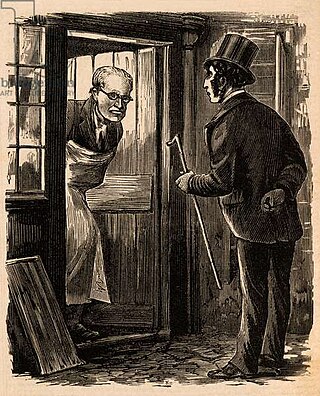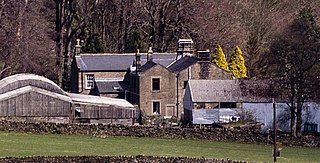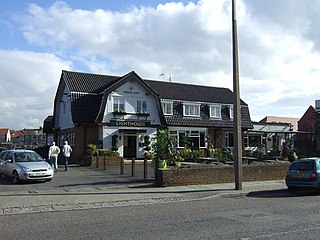
Peter William Sutcliffe, also known as Peter Coonan, was an English serial killer who was convicted of murdering thirteen women and attempting to murder seven others between 1975 and 1980. He was dubbed in press reports as the Yorkshire Ripper, an allusion to the Victorian serial killer Jack the Ripper. Sutcliffe was sentenced to twenty concurrent sentences of life imprisonment, which were converted to a whole life order in 2010. Two of his murders took place in Manchester; all the others took place in West Yorkshire. Criminal psychologist David Holmes characterised Sutcliffe as being an "extremely callous, sexually sadistic serial killer."

Charles Peace was an English burglar and murderer, who embarked on a life of crime after being maimed in an industrial accident as a boy.

The Aramoana massacre was a mass shooting that occurred on 13 November 1990 in the small seaside township of Aramoana, northeast of Dunedin, New Zealand. Resident David Gray killed 13 people, including local police Sergeant Stewart Guthrie, one of the first responders to the reports of a shooting, after a verbal dispute between Gray and his next-door neighbour. After a careful house-to-house search the next day, police officers led by the Anti-Terrorist Squad located Gray, and shot and injured him as he came out of a house firing from the hip. He died in an ambulance while being transported to hospital.
This is a timeline of major crimes in Australia.

PC Sharon Beshenivsky was a West Yorkshire Police constable shot and killed by a criminal gang during a robbery in Bradford on 18 November 2005, becoming the seventh female police officer in Great Britain to be killed on duty. Her colleague, PC Teresa Milburn, was seriously injured in the same incident. Milburn had joined the force less than two years earlier; Beshenivsky had served only nine months as a constable in the force at the time of her death, having been a community support officer before.

West Yorkshire Police, formerly the West Yorkshire Metropolitan Police, is the territorial police force responsible for policing the metropolitan county of West Yorkshire, England. It is the fourth largest territorial police force in England and Wales by number of officers.

South Yorkshire Police (SYP) is the territorial police force responsible for policing South Yorkshire in England. The force is led by Chief Constable Lauren Poultney. Oversight is conducted by Mayor Oliver Coppard.

North Yorkshire Police is the territorial police force covering the unitary authorities of North Yorkshire and the City of York in northern England. As of April 2024 the force had a strength of 1,665 police officers, 127 special constables, 192 PCSOs and 1,072 police staff. Of the 43 territorial police forces in England and Wales, the force has the 3rd largest geographic area of responsibility whilst being the 15th smallest force in terms of police officer numbers.

The Napier shootings took place on 7 May 2009 in Napier, New Zealand. At around 9.30 am, Jan Molenaar fired on police officers executing a cannabis search warrant at his house at 41 Chaucer Road, killing Senior Constable Len Snee and seriously injuring senior constables Bruce Miller and Grant Diver. A neighbour attempting to assist the police was also shot.
The Chlorane Bar attack was a mass shooting at a city centre pub on 5 June 1976 in Belfast, Northern Ireland. It was carried out by the Ulster Volunteer Force (UVF), an Ulster loyalist paramilitary organisation, apparently in retaliation for the Provisional IRA bombing attack on the Times Bar on York Road, in which two Protestant civilians were killed. In the Chlorane attack, five civilian men were killed; three Catholics and two Protestants. The gunmen were militants from the UVF Belfast Brigade's Shankill Road battalion. The assault was a joint operation by the platoons based at the Brown Bear and the Windsor Bar, drinking haunts in the Shankill Road district frequented by UVF members.

On 18 September 2012, two Greater Manchester Police officers, Nicola Hughes and Fiona Bone, were killed by Dale Cregan in a gun and grenade ambush while responding to a report of a burglary in Tameside, Greater Manchester, England.

On 21 September 1986, Ian Wood shot and killed his partner Danielle Ledez and her daughter Stephanie, and severely injured Christopher, Ledez's elder child, at Ughill Hall in Bradfield, Sheffield, United Kingdom. Wood left his .38 Enfield revolver in the kitchen and called the police before fleeing the scene. He went on the run for over a week, making several telephone calls to journalists and family members. Eight days later he threatened to jump off the Amiens Cathedral in France but was talked down by the police after seven hours. He was then extradited back to Sheffield for trial.
The 1991 New Zealand bravery awards were announced via a Special Honours List dated 19 December 1991. Twelve of the 33 recipients were recognised for acts of bravery during the Aramoana Massacre on 13 November 1990.

David Matthew Wynn was a Canadian police officer in the St. Albert RCMP in Alberta. David Wynn was shot and killed by Shawn Rehn in St. Albert's Apex Casino during a routine license plate check. He is the namesake of a defeated bill, Wynn's Law, that would have made it more difficult for suspects to make bail if they had a criminal history. David Wynn was posthumously awarded a bravery award by the RCMP commissioner.

Matthew Dennis Hunt was a New Zealand Police constable who was killed in Massey during a traffic stop on 19 June 2020. Eli Epiha, a 24-year-old man, pleaded guilty to his murder while a 30-year-old woman, Natalie Bracken, was found guilty to being an accessory after the fact. Hunt's death marked the first police fatality in the line of duty in New Zealand since 2009.
The 1987 New Zealand bravery awards were announced via a Special Honours List on 27 August 1987, and recognised ten people for acts of bravery between 1984 and 1986.
The 2008 New Zealand bravery awards were announced via a special honours list on 3 May 2008, and recognised five people for acts of bravery between 2004 and 2006. In March 2023, two further awards, to police officers Eric Tibbott and Allister Rose, previously not made public for security reasons relating to the New Zealand Police, were published.

The Wieambilla shootings was a religiously motivated terrorist attack in Australia on 12 December 2022. It involved the killing of police constables Matthew Arnold and Rachel McCrow, and neighbour Alan Dare, at a rural property in Wieambilla, a locality in Queensland. Three residents, brothers Gareth and Nathaniel Train, and Gareth's wife, Stacey Train, were subsequently shot and killed by Queensland Police. The shootings were labelled as Australia's first fundamentalist Christian terrorist attack.

On the evening of 24 December 2022, one person was killed and five others were injured in a mass shooting at the Lighthouse pub in Wallasey, Merseyside, England. The perpetrator, 22-year-old Connor Chapman, was sentenced to life imprisonment for murder; it is not believed that the victim was targeted.














